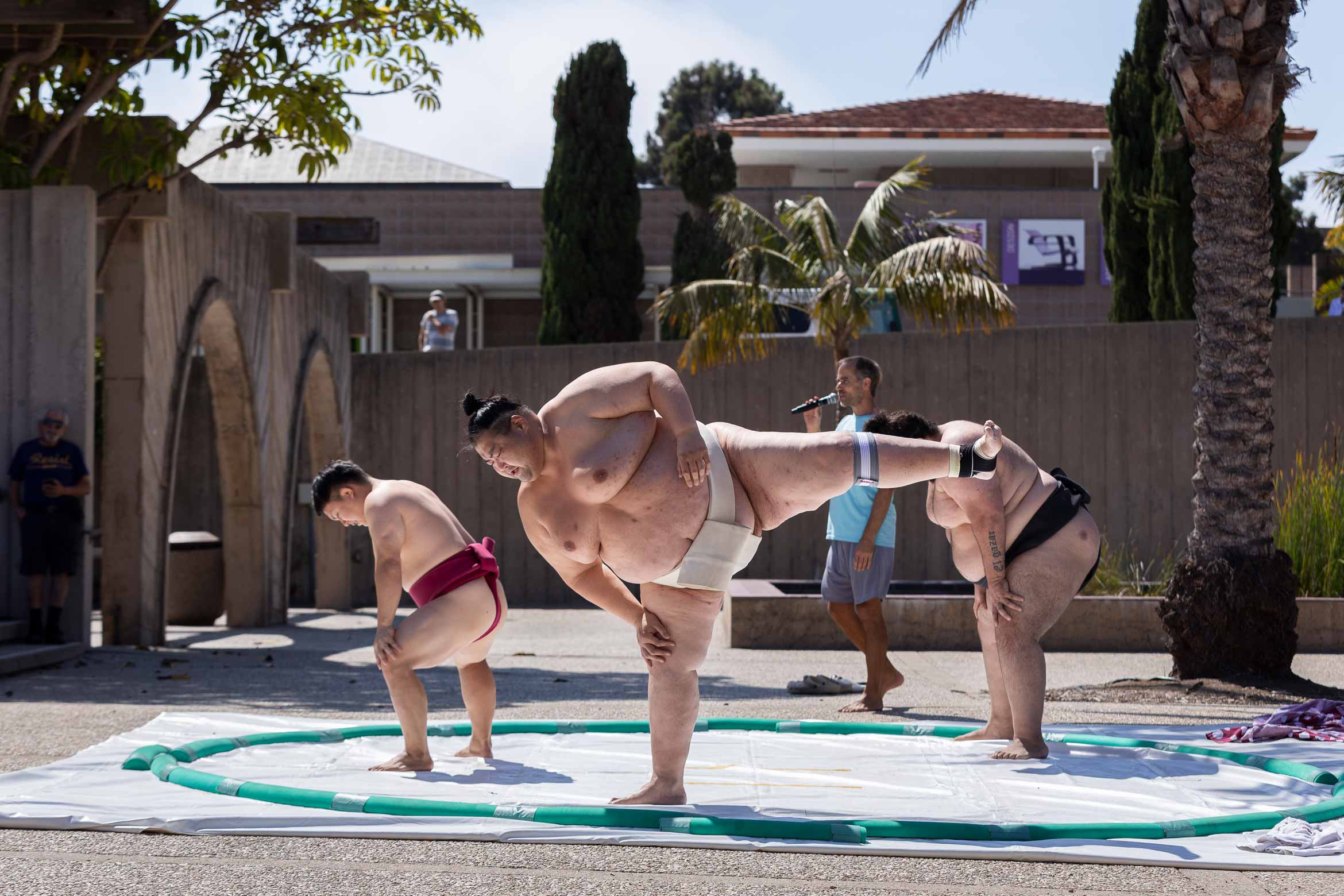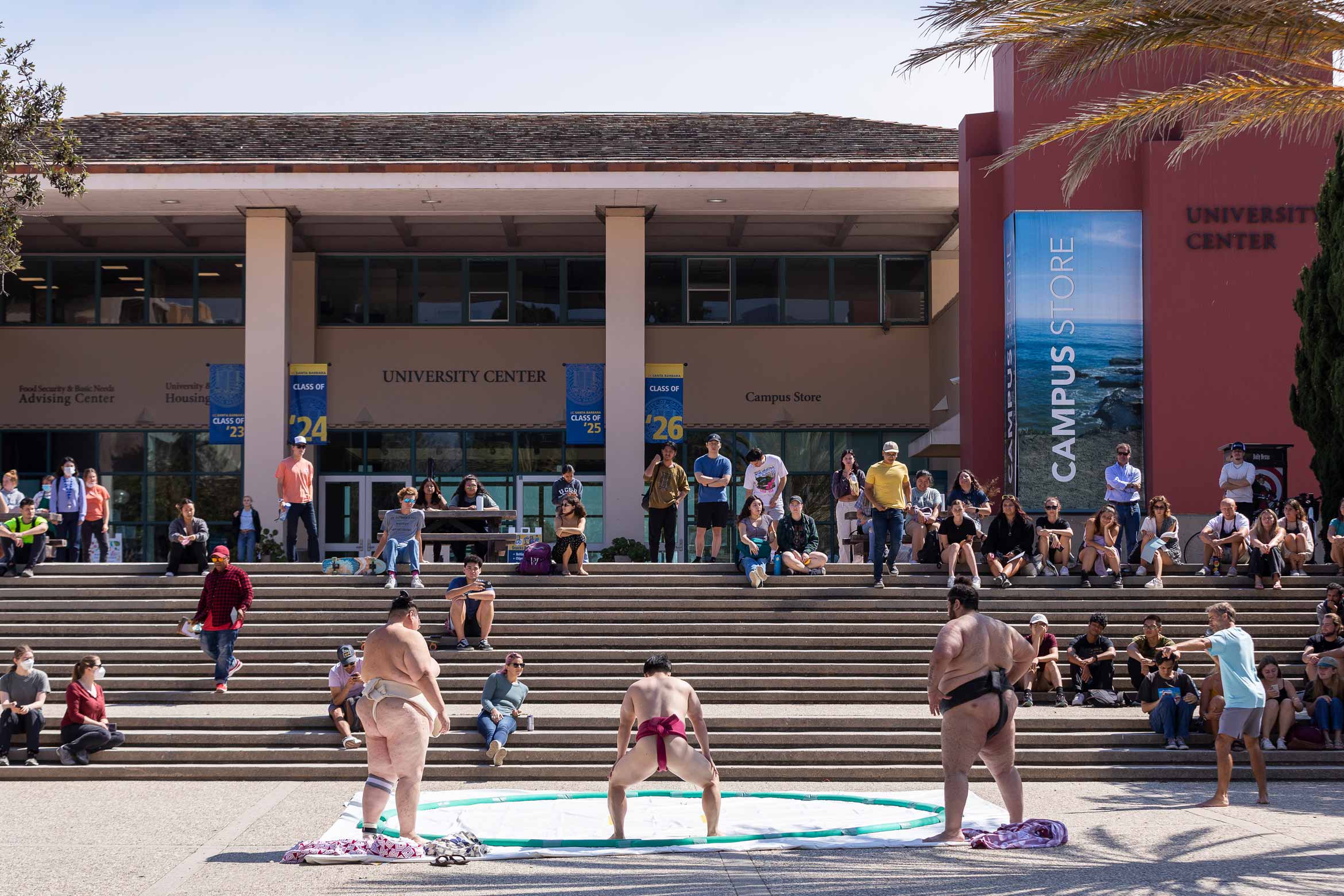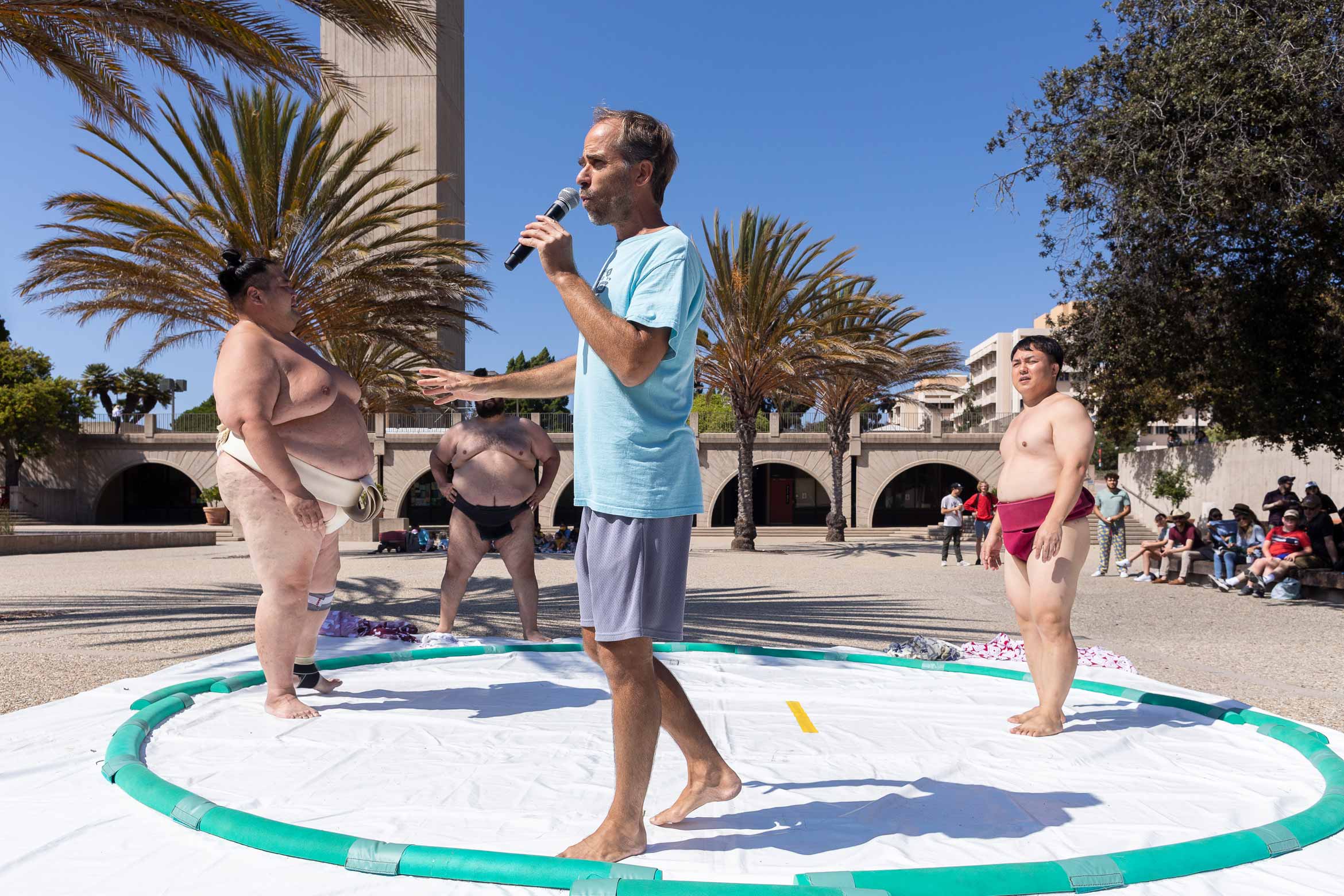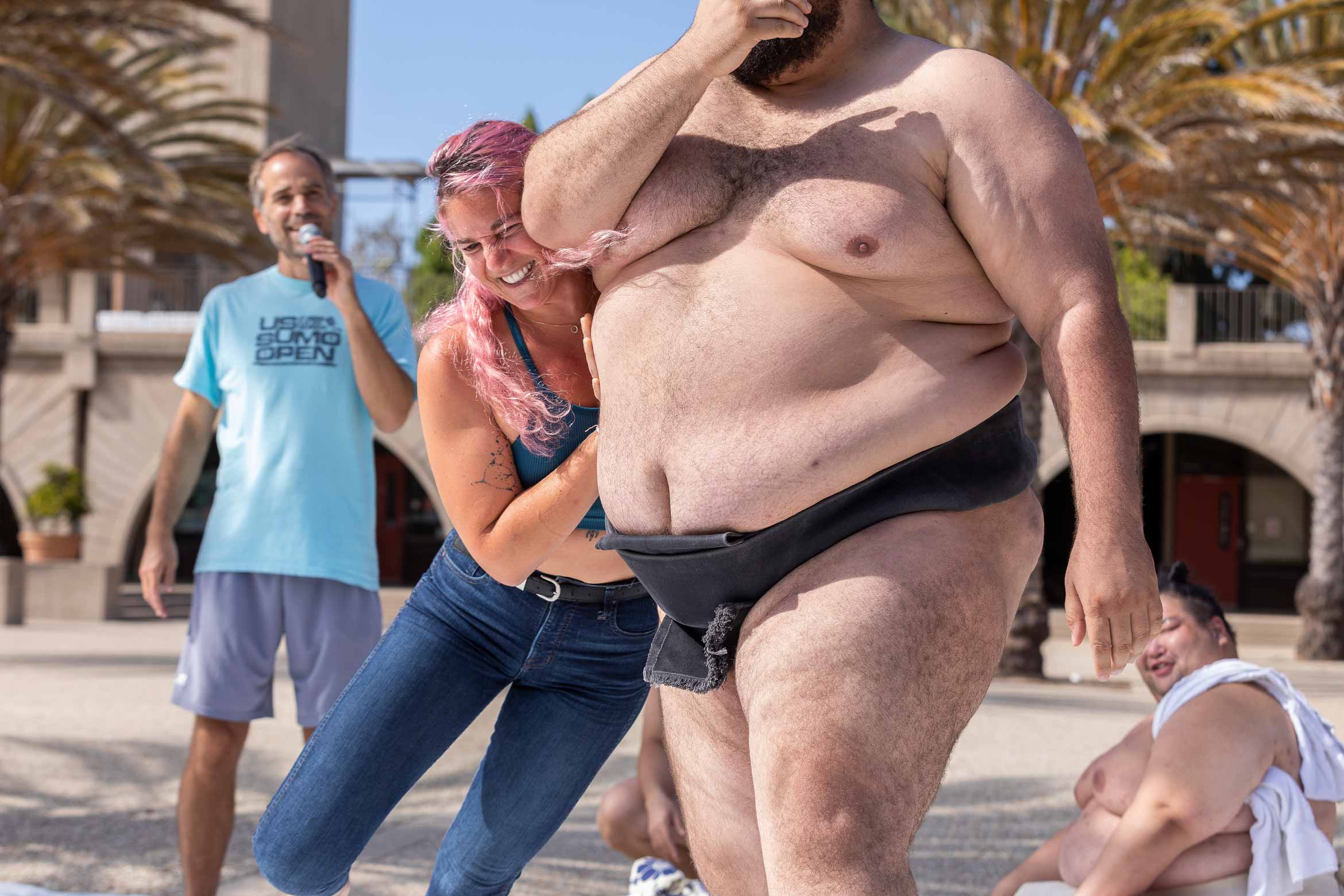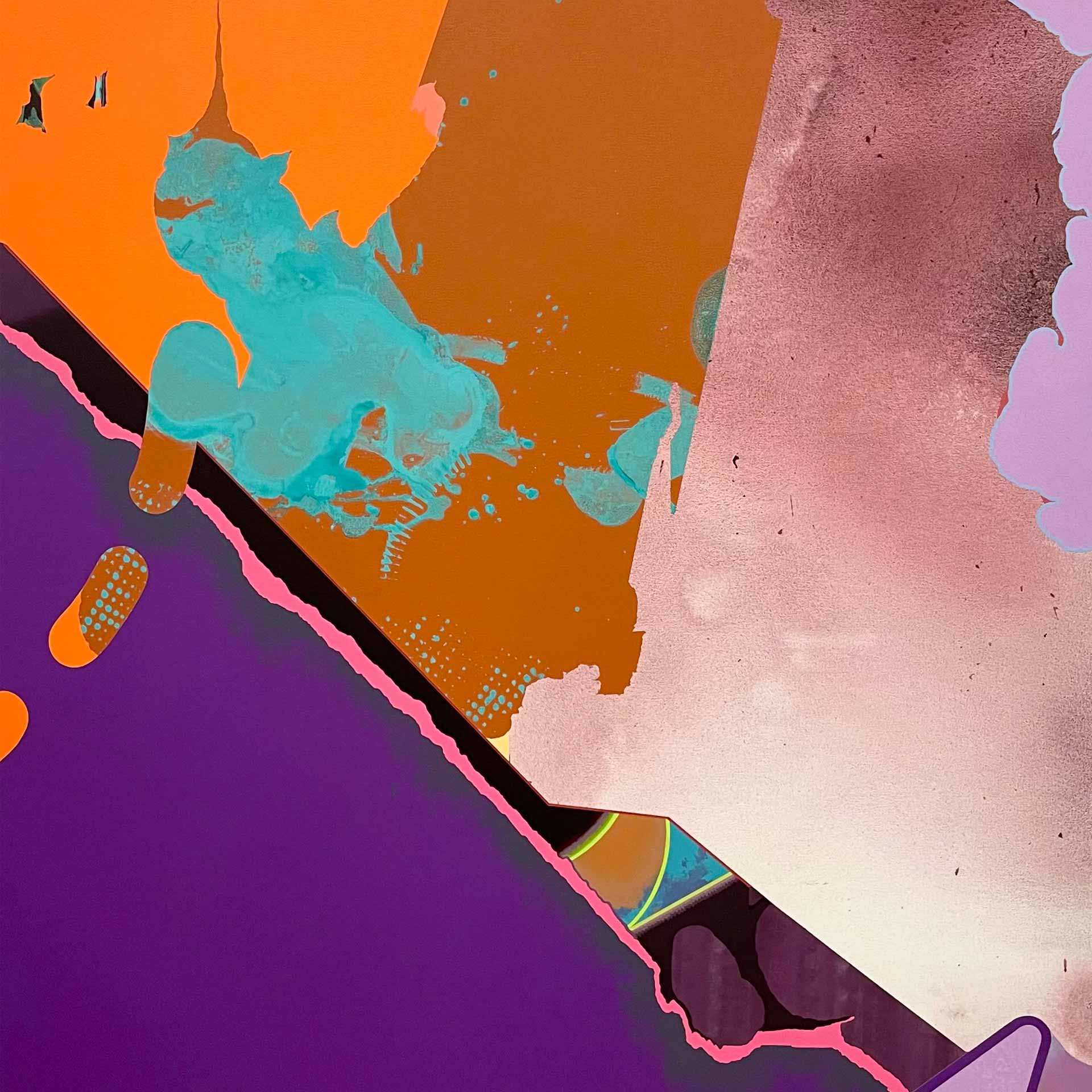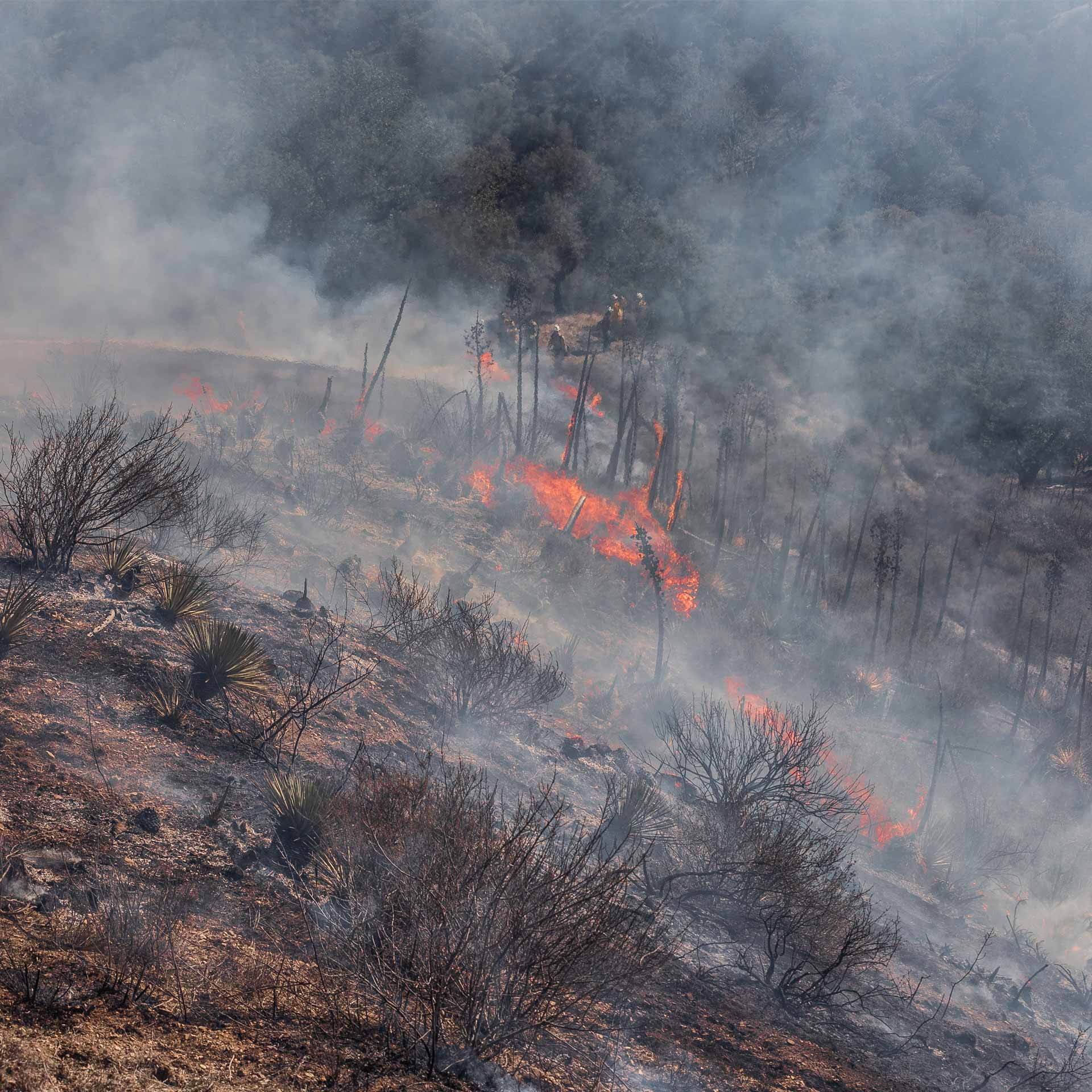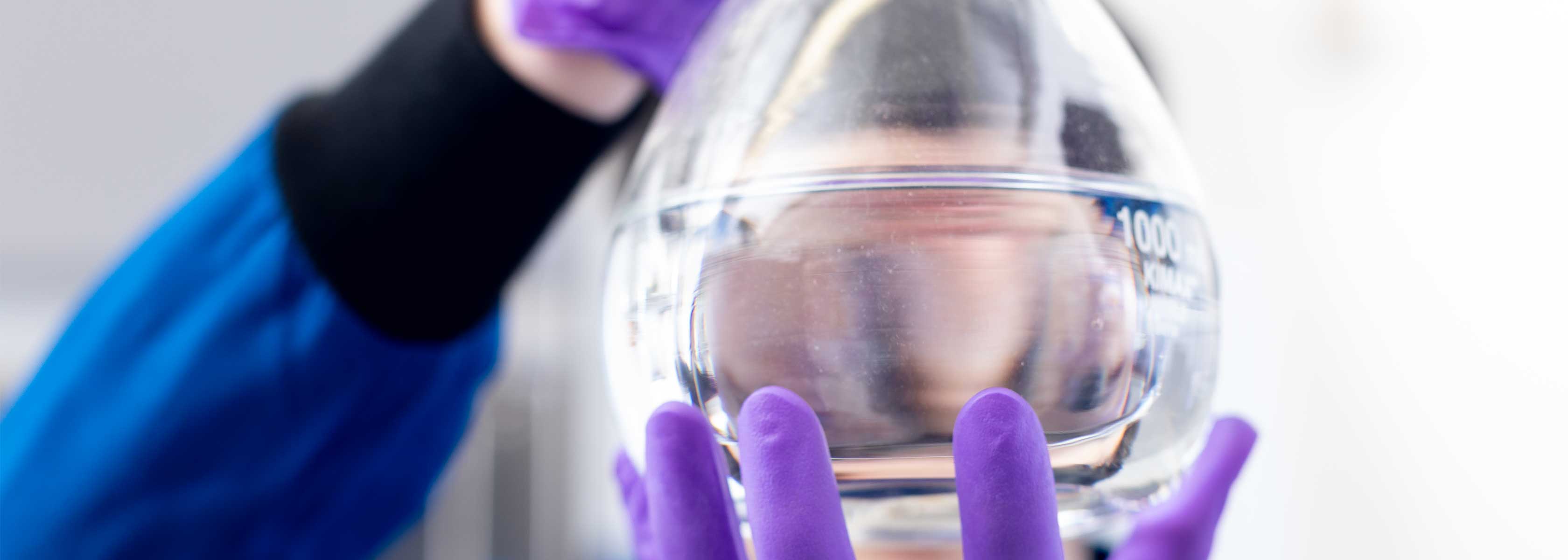Lacking any sort of master plan for his future as he neared graduation from the College of Creative Studies, Andrew Freund ’90 was intrigued by an ad in the Daily Nexus for a teaching opportunity in Japan. He mailed in a résumé and was granted an interview, which led to a job offer. He soon found himself living in Tokyo at age 19, teaching English to top business executives despite having no formal training in speaking Japanese.
“When I lived in Japan, I was an introverted teenager who was nervous in public. I pretty much stayed in my room and didn’t go out much,” says Freund. “But one day, I was looking at a magazine about things to do in Tokyo and there was an entry in their event calendar for a pro sumo tournament. Being naïve, I went right when the event started and got the cheapest seat.” He describes sitting on a woven tatami mat in the nosebleed section for nine hours, as the tournament progressed from the low-ranked morning matches to the highly anticipated evening competitions, the arena slowly filling with spectators. “I remember when I was watching the matches, I got into it viscerally,” says Freund. “I could almost feel the action that I wanted to take in my body.”
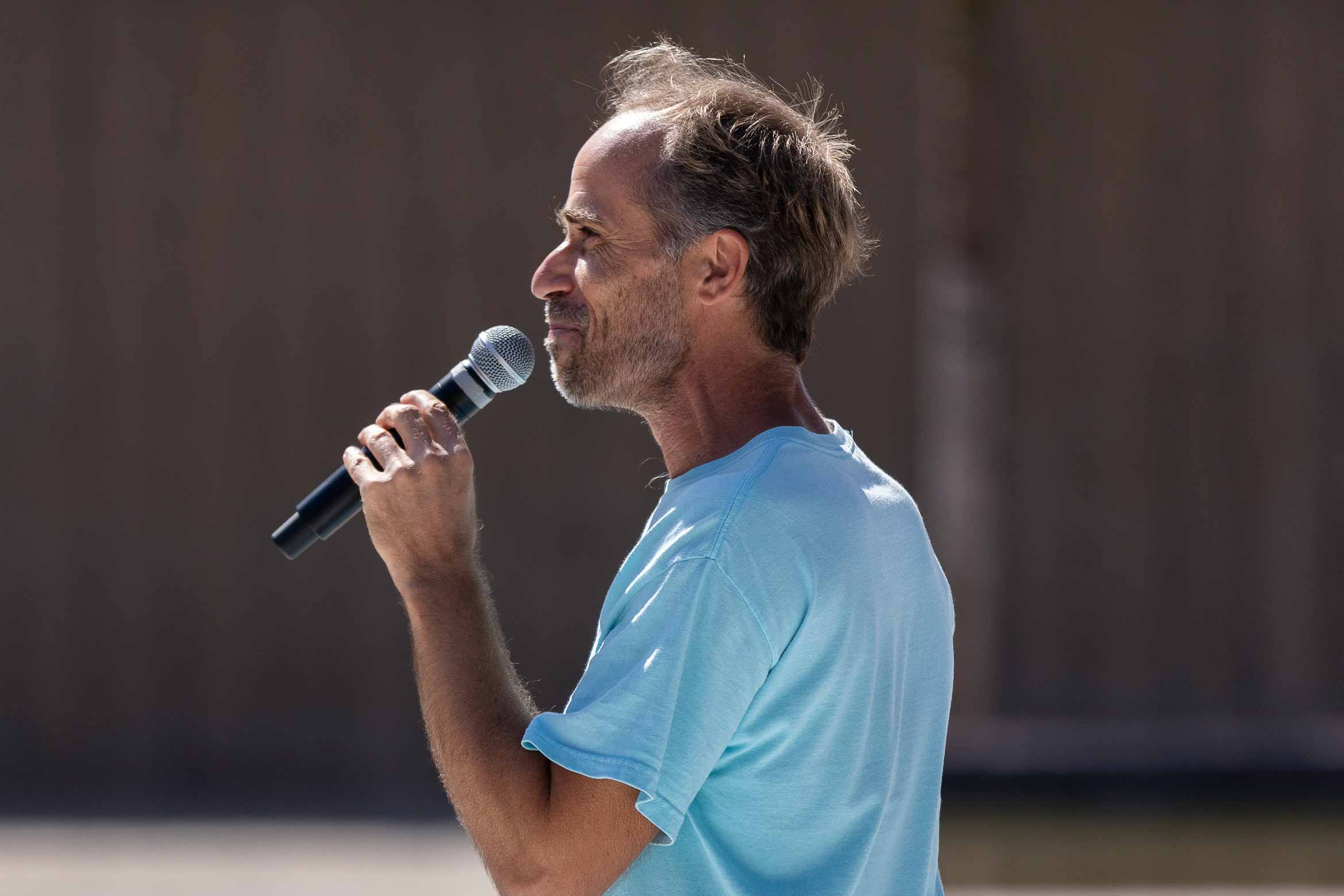
Andrew Freund '90 visited campus earlier this academic year.
Moving back to Southern California from Japan, Freund developed a passion for sumo wrestling that led to a career. As he continued to teach around Los Angeles, he started practicing, competing and coaching sumo, going on to establish several sumo organizations, including the UCLA Sumo Club, the first and only officially recognized university sumo club ever in the U.S. A winner of multiple National Sumo Champion titles, Freund also created an event for high-caliber international athletes called the US Sumo Open, which has been running annually since 2001. Featuring national and world champions from over 40 countries, and the first major tournament to include female competitors, it is the largest and longest-running annual sumo competition outside of Japan.
The tournament is run by USA Sumo, where Freund is director. Over the past two decades, he has traveled to 40 countries and produced more than 800 events. He is a longtime commentator and voice of Japanese professional sumo (Grand Sumo), including as live house announcer for Grand Sumo tournaments in Las Vegas and Los Angeles, for audiences of more than 50,000. For many years, he’s been a color commentator for global TV broadcasts of Grand Sumo via the Fight Sports Network.
“What I have been able to do is take the key cultural aspects from sumo and present them in a way that Americans appreciate,” says Freund. “On a typical day, I’m in talks with multiple events and shoots for commercials, television and YouTube. Or I’m organizing events and shows, which we do around the world. I think I’ve been able to do so much because I’m still having fun. I also practice sumo and coach, every week. That physical, visceral connection to the sport hasn’t gone away.”
As a student at UCSB, so singularly devoted was Andrew to his studies that he enrolled in 48 units one quarter and 52 units the following quarter (though CCS now limits students to enrolling in no more than 95.5 units, there was no limit in the 1990s. The average number of units for today’s undergraduate is 16). “I didn’t know what I was doing,” he says of those days. “I just went in whatever direction felt right at the time.” He graduated in two years.
Earlier this academic year, Andrew visited his alma mater, bringing three former sumo champions to Storke Plaza for a showcase match and public demonstration of the sport. He praised the university — and the College of Creative Studies specifically — for inspiring him to pursue a somewhat unconventional but ultimately rewarding career path.
